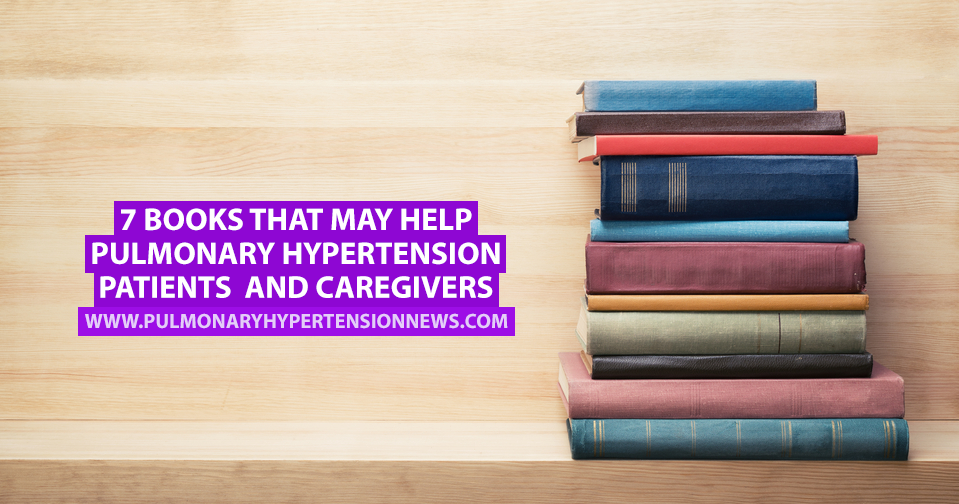7 Books That May Help Pulmonary Hypertension Patients and Caregivers
Written by |

When you’re dealing with a disease that’s affecting you or your loved ones, you may feel confused. Books on the subject are a good way to learn more about the condition and will help you stay up to date on new developments. To help you get started, here are some of the bestselling books about pulmonary hypertension:
“Pulmonary Hypertension: A Patient’s Survival Guide” by Gail Boyer
You can, in fact, judge this book by its cover, or more specifically, its title. Written as a comprehensive survival guide that covers all aspects of the disease, it was written by Gail Boyer, a patient with PH, in order to help others going through the same experience. She also wanted to help new patients with any questions they may have. Although it was written with that propose in mind, it’s a great resource for everyone affected by this disease.
This book is revised either every year or every other year by a specialized team to make sure it’s kept up to date.
MORE: Five tips to help you live well with pulmonary hypertension
“Pulmonary Arterial Hypertension: Diagnosis and Evidence-Based Treatment” by Robyn Barst
This book was written by specialists for both pulmonary and cardiovascular problems and is an amalgamation of different treatments and up-to-date information on PAH management.
“Living with Pulmonary Hypertension“ by Jeannette Morrill
This book is written as an account of the author’s journey with PH and how she learned to cope and live with her disease. She wanted to help those living with PH or other chronic diseases and give them hope for the future. When she was told she had two years to live, 41 years ago, she strived to learn everything she could about PH and has since become a speaker at various conferences. In 2012, she was named the Outstanding Citizen of the Year by the Pulmonary Hypertension Association.
“Pulmonary Hypertension” by Nicholas S. Hill
This book was mainly written for medical professionals and delves into subjects like the discoveries of endothelin overexpression as well as prostacyclin and nitric oxide deficiency and how they’re linked to pulmonary hypertension. These treatments spurred some important developments in PH patient’s overall health and survival.
“Pulmonary Arterial Hypertension and Interstitial Lung Diseases: A Clinical Guide” by Robert P Baughman, M.D. (Editor)
In this clinical guide, prominent specialists give a summary of the issues physicians have to deal with when managing interstitial lung diseases (ILDs). This guide presents an update on general issues, a thorough analysis of the pathology of ILDs, and addresses specific disease categories.
“Primary Pulmonary Hypertension” by Lewis J. Rubin (Editor), Stuart Rich (Editor)
This book focuses on the history of primary pulmonary hypertension (PPH) and some of its scientific concepts and treatments. Written by close to 30 specialists from all around the world, it gets into several important topics, including etiological possibilities of pathogenesis, familial PPH and much more.
“Pulmonary Hypertension” by Clive Handler, Gerry Coghlan
This handbook is about both PH and pulmonary arterial hypertension (PAH). It gives the reader information from medical professionals who have come face to face with these diseases. It covers a wide range of topics like what the diseases are, who has a higher probability of being affected, how it’s diagnosed and misdiagnosed, the different kinds of treatment, long-term management of this disease, and how to manage it with other multi-system diseases. It also covers the new classification for both PH and PAH, and drugs that have become available in the year it was published.
MORE: The difficulties of diagnosing pulmonary arterial hypertension
Pulmonary Hypertension News is strictly a news and information website about the disease. It does not provide medical advice, diagnosis, or treatment. This content is not intended to be a substitute for professional medical advice, diagnosis, or treatment. Always seek the advice of your physician or other qualified health provider with any questions you may have regarding a medical condition. Never disregard professional medical advice or delay in seeking it because of something you have read on this website. The opinions expressed in this column are not those of Pulmonary Hypertension News, or its parent company, Bionews Services, and are intended to spark discussion about issues pertaining to Pulmonary Hypertension.



